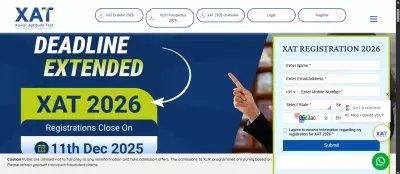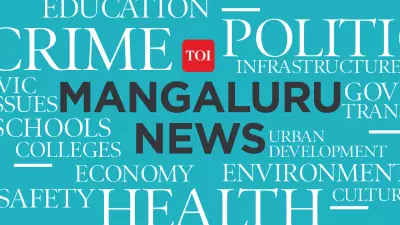
Across India's higher education landscape, a troubling paradox persists: students are achieving record-high examination scores while graduating with alarmingly low practical skills. This growing disconnect between academic performance and real-world capability is creating what experts call a "high marks, low skills" crisis that threatens India's economic ambitions.
The Employability Gap: Stark Numbers Reveal the Truth
Recent studies paint a concerning picture. Despite impressive percentages on paper, only a small fraction of Indian graduates possess the necessary skills for employment in their chosen fields. The problem spans across disciplines—from engineering and technology to humanities and business studies.
Root Causes of the Skills Deficit
Several systemic issues contribute to this educational crisis:
- Outdated Curriculum: Many institutions continue teaching decades-old material that bears little relevance to contemporary industry needs
- Examination-Obsessed Culture: The education system prioritizes rote memorization and high scores over critical thinking and practical application
- Faculty Development Gaps: Many educators lack exposure to current industry practices and emerging technologies
- Infrastructure Limitations: Inadequate laboratory facilities and practical training resources hinder hands-on learning
Bridging the Divide: Practical Solutions in Action
Educational institutions and policymakers are implementing several strategies to address this critical issue:
Industry-Academia Integration
Forward-thinking universities are establishing stronger ties with corporations through internship programs, guest lectures from industry experts, and curriculum development partnerships. This ensures students gain exposure to real workplace challenges and expectations.
Curriculum Modernization
Institutions are revamping syllabi to include emerging fields like artificial intelligence, data analytics, and sustainable technologies while incorporating more project-based learning and case studies.
Skill Assessment Reforms
Some universities are shifting evaluation methods to measure practical competencies alongside theoretical knowledge, using presentations, portfolio assessments, and real-world problem-solving exercises.
Faculty Development Initiatives
Regular industry immersion programs for educators help bridge the gap between academic knowledge and practical application, ensuring they can prepare students for current workplace demands.
The Road Ahead: Transforming Indian Higher Education
The solution requires a fundamental shift from a marks-oriented system to a skills-focused ecosystem. This transformation demands collaboration between educational institutions, industry partners, government bodies, and students themselves.
As India positions itself as a global knowledge economy, addressing the skills gap becomes not just an educational imperative but an economic necessity. The success of initiatives like the National Education Policy 2020 and increased industry involvement in curriculum design will play crucial roles in determining whether Indian graduates can translate their academic achievements into professional success.





